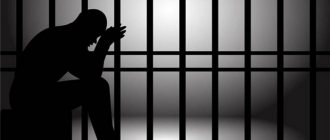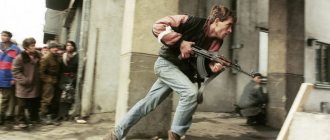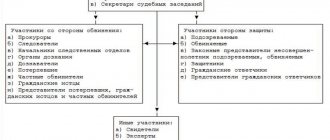ST 91 of the Criminal Code of the Russian Federation.
1. A warning consists of explaining to a minor the harm caused by his act and the consequences of repeated commission of crimes provided for by this Code.
2. Transfer to supervision consists of assigning to parents or persons replacing them, or to a specialized state body, the responsibility for educational influence on a minor and monitoring his behavior.
3. The obligation to make amends for the harm caused is imposed taking into account the property status of the minor and the availability of appropriate work skills.
4. Restrictions on leisure time and the establishment of special requirements for the behavior of a minor may include a ban on visiting certain places, using certain forms of leisure, including those related to driving a motor vehicle, limiting stay outside the home after a certain time of day, traveling to other areas without the permission of a specialized state organ. A minor may also be required to return to an educational organization or find employment with the help of a specialized government agency. This list is not exhaustive.
Warning
A warning is the mildest compulsory educational measure; it is of an indefinite (one-time) and public nature and, as a rule, is announced by a judge in the courtroom.
The essence of the warning is to verbally instill in the minor the social unacceptability of his behavior; it consists of explaining to the minor the harm caused by his act and the consequences of repeating the crime. The warning is given orally, but is issued in writing indicating that the essence of the warning is clear.
A warning is one of the measures of influence, the failure of which cannot lead to the cancellation of educational measures, because a warning does not impose any obligations on the released person, especially the fulfillment of which could be monitored.
Third commentary to Article 91 of the Criminal Code of the Russian Federation
1. The main purpose of applying the provisions listed in Art. 91 of the Criminal Code of measures - to ensure that the teenager feels the weight of responsibility for the harm caused by his act, realizes that his behavior is under the close control of relevant persons and organizations, whose task is to help him improve and prevent new offenses.
2. The 1996 Criminal Code of the Russian Federation provides for the transfer of minors to the supervision of not only parents or persons replacing them, but also a specialized government body that provides corrective influence on the minor and control over his behavior.
3. The most serious, of course, is “restricting leisure time and establishing special requirements for the behavior of a minor.”
When it is implemented, the minor is placed in conditions that make it possible to significantly protect him from the negative influences of the microenvironment and direct him towards normal, lawful behavior. At the same time, the list of special requirements imposed on him and set out in Part 4 of Art. 91 of the Criminal Code, is not exhaustive and can be creatively supplemented with rational measures that have an effect in the re-education of a teenager. ‹ Article 90. Application of compulsory measures of educational influenceUp Article 92. Exemption from punishment of minors ›
Transfer to supervision
Supervision of persons who have committed crimes as minors consists of monitoring their behavior and conducting appropriate educational work with them. The law assigns supervision to parents, persons replacing them, as well as specialized government bodies.
Transferring a minor under the supervision of parents or persons replacing them essentially involves drawing the attention of these entities to the need for a more thorough approach to the upbringing of a minor. Paragraph 34 of the Resolution of the Plenum of the Supreme Court of the Russian Federation dated 02/01/2011 N 1 “On the judicial practice of applying legislation regulating the specifics of criminal liability and punishment of minors” contains the following explanations:
“When deciding on the transfer of a minor to the supervision of parents or persons replacing them, the court must make sure that these persons have a positive influence on him, correctly assess what he has done, can ensure his proper behavior and daily control over him. To do this, it is necessary, for example, to request data characterizing the parents or persons replacing them, to check their living conditions and the possibility of providing financial support for the minor. In this case, the consent of the parents or persons replacing them must be obtained to transfer the minor to their supervision.”
Transferring a minor under the supervision of a specialized government agency involves carrying out individual preventive work with the minor for the purpose of his socio-psychological rehabilitation and preventing him from committing new crimes (Article 1 of the Federal Law of June 24, 1999 N 120-FZ). The criminal law does not precisely define the specialized state body under whose supervision a minor may be transferred; such a body may be one of the bodies or institutions of the system for the prevention of neglect and juvenile delinquency (Article 4 of the said Law).
Commentary to Art. 91 Criminal Code
1. A warning is the mildest compulsory educational measure; it is of an indefinite (one-time) and public nature and, as a rule, is announced by a judge in the courtroom.
2. When transferring a minor to the supervision of parents or persons replacing them, the court must make sure that these persons have a positive influence on the teenager, correctly assess what he has done, and can ensure appropriate behavior and daily control of the minor. To do this, it is necessary to request characterizing material, check the living conditions of the parents or persons replacing them, the possibility of financial support for the teenager, etc.
3. Making amends for the harm caused involves compensating minors for the negative consequences of the crime they committed. The type of harm that a minor must compensate is not defined by law. Accordingly, the court may impose on the minor the obligation to compensate for both material and moral damage.
4. In part 4 of Art. 91 of the Criminal Code contains an approximate list of requirements and restrictions applicable to a minor. In general, these requirements must be reasonable, not cruel, and not harmful to the minor.
Obligation to make amends for harm caused
Imposing the obligation to make amends for the harm caused means compensation for the damage caused by the crime with one’s own means or one’s own labor. The law does not prohibit making amends for any harm caused through monetary compensation, especially with the consent of the victim. The type of harm that a minor must compensate is not defined by law. Accordingly, the court may impose on the minor the obligation to compensate for both material and moral damage. This measure is prescribed taking into account the property status of the minor and the availability of appropriate labor skills.
Limiting leisure time and establishing special requirements for the behavior of a minor
Limiting leisure time and establishing special requirements for the behavior of a minor essentially represent the imposition of certain responsibilities on the minor, so that the minor is engaged in socially useful activities as much as possible, does not have the opportunity (or such an opportunity would be reduced) to communicate with an environment that negatively influences him, visit places where antisocial behavior is practiced.
Restrictions on leisure time and the establishment of special requirements for the behavior of a minor may include a ban on visiting certain places, using certain forms of leisure, including those related to driving a motor vehicle, limiting stay outside the home after a certain time of day, and traveling to other areas without the permission of a specialized government agency. A minor may also be required to return to an educational institution or find employment with the help of a specialized government agency.
In Part 4 of Art. 91 of the Criminal Code of the Russian Federation contains an approximate list of requirements and restrictions applicable to a minor. In general, these requirements must be reasonable, not cruel, and not harmful to the minor.
Compulsory measures of educational influence are established by the court for a duration of from one month to two years when committing a crime of minor gravity and from six months to three years when committing a crime of medium gravity.
Article 91 of the Code of Criminal Procedure of the Russian Federation. Grounds for detaining a suspect (current version)
1. Detention of a suspect is a measure of procedural coercion applied by the body of inquiry, interrogating officer, investigator for a period of no more than 48 hours from the moment of actual detention of a person on suspicion of committing a crime (clause 11 of article 5 of the Code of Criminal Procedure). The essence of detention is the short-term holding of a person in custody without the prior permission of the head of the investigation agency, the prosecutor or the court. In this case, detention is divided into two types: detention of a suspect and detention of an accused. For the detention of the accused, see paragraph 10 of the commentary. to this article.
The Code of Criminal Procedure provides for the possibility of taking into custody a convicted person who is maliciously evading serving a criminal sentence not involving imprisonment, pending consideration of the issue of replacing this type of punishment with a more severe one (clause 18 of Article 397). The period of such detention is determined by the court up to 30 days. The long duration of this coercive measure and the preliminary decision of the court equate it to the use of a preventive measure in the form of detention in order to ensure the execution of a sentence. To ensure a thirty-day detention, the Department of Internal Affairs has the right to detain a convicted person for up to 48 hours, however, this detention is regulated by the Penal Code of the Russian Federation (Part 2, Article 30; Part 4, Article 32; Part 4, Article 46).
Criminal procedural detention should be distinguished from actual detention, administrative detention (Articles 27.3 - 27.6 of the Administrative Code), detention of a convicted person for up to 30 days in case of evasion of execution of punishment (Articles 30, 32, 46, 58, 97 PEC). Unlike detention, detention is an urgent, short-term detention, has special grounds, goals, application procedure, and always precedes possible detention.
2. Detention is always an urgent measure of procedural coercion (on the concept of an urgent situation, see the commentary to Article 157). Due to its urgent nature, the detention is carried out without the consent of the head of the investigation department, the prosecutor or a court decision. It is impossible to detain a suspect twice for committing the same crime, since after the first detention the urgency of the investigation situation is lost. Repeated detention of the accused on the same request for a preventive measure in the form of detention is not allowed.
3. Detention can be carried out by an investigator, an inquiry agency and an interrogating officer. At the same time, the decision of the investigator on detention and the protocol of detention drawn up by him do not require approval by the head of the inquiry body. See comment. to paragraph 17 of Art. 5; Art. 41.
4. The purposes of detaining a suspect are to determine: 1) the person’s involvement in the commission of a crime; 2) the need for detention and ensuring this preventive measure. If these circumstances have already been clarified, then detention is impossible. Detention to obtain a confession from a suspect is not permitted.
5. Detention is permitted for crimes punishable by imprisonment, usually more than 2 years. Consequently, detention is possible only if there is a decision to initiate a criminal case. A special detention procedure applies to persons with official immunity (Article 449).
6. The article under comment provides for four grounds for detention.
Clause 1 part 1 art. 91 of the Code of Criminal Procedure provides for actual detention (capture) during the suppression of a crime (as well as preparation, attempt), at the scene of the commission of a crime, or as a result of the pursuit of a person immediately after the commission of a crime. The actual arrest can be carried out by any person (victim, eyewitnesses, police officers). In this case, the investigator or interrogating officer who participated in the actual detention is subject to disqualification as future witnesses (Part 1 of Article 61), if the actual detention was carried out before the initiation of a criminal case and there were no other eyewitnesses to the crime.
7. The indications of victims or eyewitnesses cannot serve as a basis for detention if they assume that a crime has been committed by this person (based on guesses, inferences); they speak from hearsay or cannot indicate the source of their knowledge (clause 2, part 2, article 75).
8. Obvious traces of a crime do not require special knowledge to identify them; they are obvious. Such traces may be the presence of bodily injuries, physical evidence (for example, instruments and objects of a crime, traces of blood).
9. Other data that gives grounds to suspect a person of committing a crime, as a basis for detention, are less compelling evidence (similarity of the suspect’s appearance with the description of the criminal, confession, testimony of persons who are not eyewitnesses, etc.) and are used if available one of the four additional conditions specified in Part 2 of the commented article.
According to the meaning of part 2 of the comment. Article detention can be used to ensure the appearance of the suspect and accused in court to consider a request to apply a preventive measure in the form of detention. According to Part 3 of Art. 210 a wanted accused may be detained in a manner established by analogy with the institution of detention of a suspect, in order to resolve the issue of a preventive measure.
10. Detention of the accused is an urgent measure of procedural coercion, the content of which consists of short-term detention of the accused in order to immediately bring him to court to consider the petition of the criminal prosecution authorities to choose a preventive measure in the form of detention. The formation of the institution of detention of the accused is associated with the prevention of detention in absentia (in the absence of the accused - part 4 - 5 of Article 108).
The detention of the accused has special grounds, goals, motives and conditions. The basis for it is the need to consider in court the investigator’s justified request to select a preventive measure in the form of detention in relation to the wanted accused. The purpose is to bring the accused promptly before the court for consideration of the said petition. The motive is the fear that the accused will avoid appearing at the trial. The condition is the issuance of a reasoned decision to bring him into custody as an accused (and in exceptional cases - an indictment, since during an inquiry, as a general rule, detention is not used).
11. It seems that the factual grounds for detention must be established with the help of criminal procedural evidence: protocols of investigative actions and other documents. The possibility of indicating the actual grounds for detention directly in the detention protocol is not excluded. Conditions of detention on the fourth basis - other data can be established without investigative actions. Some of them (unidentified identity) may be presumed. On the evidentiary value of the arrest report, see the commentary. to Art. 92.
Comment source:
Ed. A.V. Smirnova “COMMENTARY ON THE CRIMINAL PROCEDURE CODE OF THE RUSSIAN FEDERATION” (ARTICLE BY ARTICLE), 5th edition
SMIRNOV A.V., KALINOVSKY K.B., 2009




